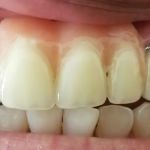The Best Foods to Eat to Maintain Healthy Teeth and Gums
- 1. Introduction to Oral Health and Diet
- 2. The Role of Nutrients in Oral Health
- 3. Top Foods for Healthy Teeth
- 4. Foods that Promote Gum Health
- 5. Foods to Avoid for Better Oral Health
- 6. Conclusion: Making Oral Health a Priority
1. Introduction to Oral Health and Diet
Oral health is not just about brushing and flossing. It also greatly depends on the foods you consume. Many people are unaware that a balanced diet plays a key role in the health of their teeth and gums. In fact, the right foods can significantly reduce the risk of developing cavities, gum disease, and other oral health issues. In this article, we'll explore how a well-rounded diet can help maintain healthy teeth and gums, and which foods are best for achieving optimal oral health.
2. The Role of Nutrients in Oral Health
The body requires a variety of nutrients to keep teeth and gums in top condition. Nutrients such as calcium, phosphorus, vitamin D, and vitamin C are particularly important for dental health. For example, calcium strengthens tooth enamel, while vitamin C helps to prevent gum disease. Phosphorus supports enamel remineralization, and vitamin D helps the body absorb calcium. Incorporating these nutrients into your diet can make a noticeable difference in your oral health.
3. Top Foods for Healthy Teeth
When thinking about foods that promote healthy teeth, it's important to focus on those that can strengthen enamel, fight cavities, and support the gums. Here are some of the top foods you should include in your diet:
- Leafy Greens: Vegetables like spinach, kale, and broccoli are high in calcium, which is essential for strong teeth and bones. They also provide fiber that helps clean teeth while you chew.
- Dairy Products: Milk, cheese, and yogurt are rich in calcium and phosphorus, which are necessary for tooth and enamel strength. Cheese, in particular, is great for neutralizing acids that can harm your enamel.
- Crisp Fruits and Vegetables: Apples, carrots, and celery are high in fiber and water, which help stimulate saliva production. Saliva is essential for neutralizing acids and washing away food particles, preventing tooth decay.
- Green Tea: Green tea is rich in antioxidants that help protect your gums from inflammation. It also contains polyphenols that can reduce the growth of harmful bacteria in the mouth.
- Almonds: Almonds are an excellent source of calcium and protein, which help to keep your teeth strong. Their crunchy texture also promotes good oral hygiene by scrubbing your teeth as you chew.
4. Foods that Promote Gum Health
Gum health is just as important as the health of your teeth. In fact, poor gum health can lead to tooth loss and other serious oral issues. To maintain healthy gums, consider adding these foods to your diet:
- Citrus Fruits: Rich in vitamin C, citrus fruits like oranges, lemons, and grapefruits help strengthen the immune system and prevent gum disease.
- Bell Peppers: Like citrus fruits, bell peppers are high in vitamin C, which helps protect your gums from infection and inflammation.
- Onions: Onions have natural antibacterial properties that can help fight off bacteria in your mouth, reducing the risk of gum disease.
- Garlic: Garlic has antimicrobial properties that can help reduce inflammation and fight gum disease.
5. Foods to Avoid for Better Oral Health
While certain foods can improve oral health, others can harm it. Here are some foods to avoid to keep your teeth and gums healthy:
- Sugary Snacks and Beverages: Sugar feeds harmful bacteria in the mouth, which can lead to cavities and gum disease. Limit sugary snacks like candy, cookies, and soda.
- Acidic Foods: Citrus fruits, vinegar, and tomatoes can wear down tooth enamel over time. While these foods offer health benefits, it's important to consume them in moderation and rinse your mouth with water afterward.
- Sticky Snacks: Foods like caramel, gummy candies, and dried fruits can stick to your teeth, allowing sugar to linger and contribute to tooth decay.
- Alcohol: Excessive alcohol consumption can dry out your mouth, reducing saliva production and increasing the risk of cavities and gum disease.
6. Conclusion: Making Oral Health a Priority
Maintaining healthy teeth and gums goes beyond regular brushing and flossing. A balanced diet, rich in the right nutrients, can significantly improve oral health. Incorporating foods such as leafy greens, dairy products, and citrus fruits into your daily meals can help strengthen your teeth and protect your gums from disease. By making mindful choices about what you eat, you can ensure that your oral health is in top shape for years to come.







 Rush Family Dental5.0 (161 review)
Rush Family Dental5.0 (161 review) Lafayette Hill Family Dentistry4.0 (5 review)
Lafayette Hill Family Dentistry4.0 (5 review) Steven J. Moravec, DDS, MS4.0 (189 review)
Steven J. Moravec, DDS, MS4.0 (189 review) Sunnyvale Pediatric Dentistry and Orthodontics4.0 (365 review)
Sunnyvale Pediatric Dentistry and Orthodontics4.0 (365 review) New Millennium Dental Group3.0 (30 review)
New Millennium Dental Group3.0 (30 review) By Design Dental4.0 (52 review)
By Design Dental4.0 (52 review) The Importance of Oral Health Education During Pregnancy for a Healthy Pregnancy
The Importance of Oral Health Education During Pregnancy for a Healthy Pregnancy Best Tips for Brushing Your Teeth Properly for Healthy Gums: Essential Techniques for Oral Health
Best Tips for Brushing Your Teeth Properly for Healthy Gums: Essential Techniques for Oral Health Why Skipping Dental Checkups Can Lead to Bigger Oral Health Problems
Why Skipping Dental Checkups Can Lead to Bigger Oral Health Problems Advantages of Porcelain Dental Restorations
Advantages of Porcelain Dental Restorations How Can Diabetes Cause Tooth and Gum Problems? Preventing and Managing Oral Health Issues
How Can Diabetes Cause Tooth and Gum Problems? Preventing and Managing Oral Health Issues Healthy Habits for Promoting Good Oral Health and Hygiene: Tips for a Healthy Smile
Healthy Habits for Promoting Good Oral Health and Hygiene: Tips for a Healthy Smile